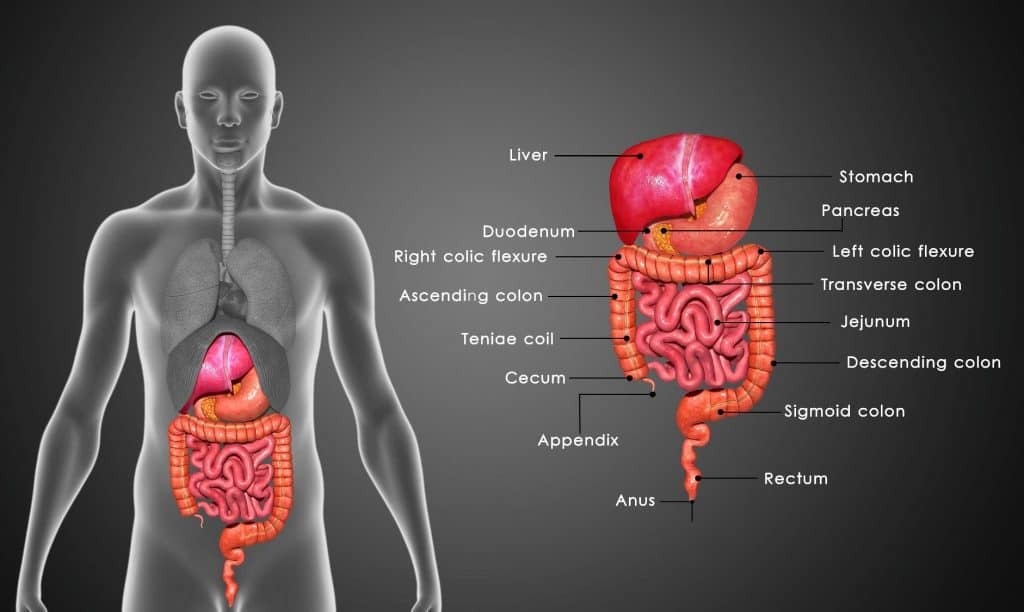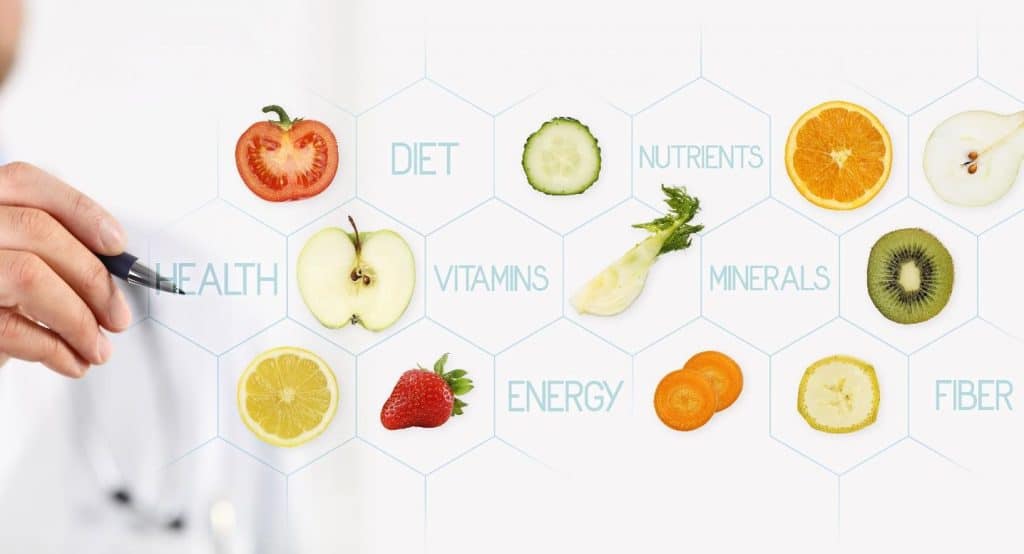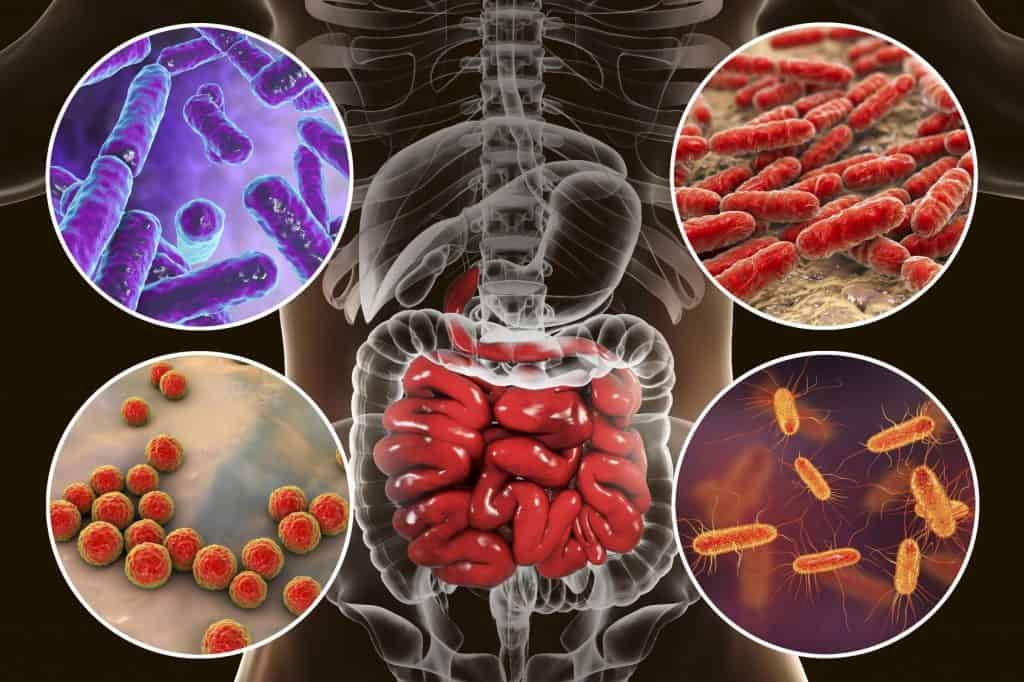
DIGESTIVE SUPPORT
By: Carolyn Berghuis, MS, ND, CTN
Reaching optimal physical health demands that your body receives and assimilates the nutrients it needs – sounds simple. Nutrients in => healthy, happy cells. Kinda like your car. For your car to perform at its best you need to give it the fuel it needs. And those high-performance cars really like (demand) high octane gasoline. However, we are much more complex than the fanciest car on the road! We have physical, emotional, and spiritual needs that need to be addressed if we are to experience optimal digestion and well-being. There is always more than meets the eye where your health is concerned. In this article we will examine the role your physical, emotional, and spiritual components play in achieving optimal digestion and steps you can take to improve it.
STRESS, DIGESTION, & WELL-BEING
Managing stress in your life is essential if you desire optimal digestion. As a matter of fact, a client’s stress handling capacity is where I begin my investigation into obstacles interfering with optimal digestion. We both need to develop an understanding of his or her ability to cope with the stressors in their life. Let’s explore.
Consider you just had an argument with a loved one. You body has moved into “fight or flight” and your sympathetic nervous system is engaged. Your physiology has changed in a big way. You are now releasing inflammatory stress hormones like cortisol. On top of this, your body isn’t directing resources towards your digestive system. Blood is being diverted away from your digestive organs, enzyme secretions and hydrochloric acid (HCL) production slows down, and nutrient absorption is inhibited. All over an argument with your loved one.
Interestingly, your body moves into fight or flight even when you think about a stressor. Revisiting a previous argument or the frustration you experienced on the drive into work today will re-ignite your sympathetic nervous system and its subsequent stress response. Additionally, studies reveal that 95% of your serotonin, the neurotransmitter associated with happiness, is produced in your digestive track. Any disruption in the environment of your digestive system can interfere with serotonin production, which in turn can lead to depression and/or anxiety. This can be especially true when your gut bacteria are out of balance – something we will explore later in this article.
Simply stated: creating a life congruent with happiness and peace is essential for optimal digestion and well-being.
YOUR PHYSICAL DIGESTIVE NEEDS
Ok, so let’s imagine you are addressing your stress triggers and your body is not being hijacked by your sympathetic nervous system on a regular basis. Rather, your parasympathetic nervous system frequently runs the show – your “peace and calm” response to life. You are feeling good and your relationship with God and your loved ones is deepening. Your body is now free to digest your meals and heal. Now what? After all, you are living in a physical body and it has physical needs and concerns.
To begin, you are wonderfully made and, out of the abundance of God’s created natural world, he supplied the perfect food you need to thrive. However, sometimes your body becomes damaged and your digestive system no longer breaks down and absorbs the nutrients it needs from your food. Further, sometimes you feed your body subpar food (I’m guilty of that as well…). In today’s modern world too many individuals find themselves on the short end of the nutritional stick for a long list of reasons and their body suffers. Let’s explore.
Feed Me!
Your body, in its attempt to receive the nutrients it needs, cries out “feed me!” If all is well, you crave life-giving food created by God’s harvest. Hopefully you begin your meal with a blessing and you find yourself enjoying conversation with your loved ones. Life giving, happy hormones and neurotransmitters are being released and you feel great! This is the perfect picture for optimal digestion and absorption of nutrients. However, alas, this is not always the case.
Matthew 4:4 – He (Jesus when being tempted by the devil) said in reply, “It is written: ‘One does not live by bread alone, but by every word that comes forth from the mouth of God.’” (NABRE)
Picture this – maybe it is your story. Your tummy grumbles, you find yourself hungry (and possibly hangry – angry/hungry), your blood sugar is dropping, and you are craving specific foods like chocolate, sweets or salty things like chips. You grab something and you eat to satisfy your cravings. While your cravings frequently point to nutritional imbalances, eating according to your cravings is not always a good thing. Eating food low in nutrition, laden with chemical preservatives, sugars, and trans fats confuses your system. Our bodies are designed to eat living food that breaks down if not eaten in a timely matter.
Instead of nourishing your cells, the food you just ate not only taxes your digestive system, it doesn’t satisfy the nutritional needs of your hungry cells. On top of that, your body now has to deal with an increased toxic burden. The end result is a body full of calories, low in nutrition, and increased toxins. Down the slippery slope you go. Round two soon comes. Your body cries out once again – “Feed me!” Unless you interrupt this pattern and make a positive change in your life, digestive issues and lack of well-being will likely follow. Let’s take a deeper look into what’s going on and how you can make a positive change.
The Digestive System
Over the years my office has been full of individuals suffering from a variety of digestive disturbances. Gas, bloat, pain, acid reflux, constipation, and diarrhea – you name it. These are all symptoms of a deeper issue. Symptoms like these are your body’s way of communicating. There could be underling food sensitivities/allergies, microbial imbalances like candida overgrowth or insufficient colonies of healthy bacteria, low production of digestive enzymes or hydrochloric acid, or damage to the digestive organs themselves.
While the root cause varies from individual to individual, learning how to listen to your body through its communication system (symptoms) is key in achieving optimal well-being and digestive health. Optimal digestion is two-fold, you need to eat foods that support optimal health AND your digestive system needs to be healthy so it can do its job. Listening to your symptoms, and not suppressing them, is key.

Your body is beautifully created to absorb and utilize the food you take in – like a perfect flow system from mouth to rectum.
Your Mouth
A delicious dish is set before you and your mouth starts watering! Yum! The salivary enzyme amylase is already being released – ready to begin the process of breaking down your meal. At this point you must chew your food – and chew it well. After all, your stomach doesn’t have teeth. When large food particles enter into your stomach they tax your system and makes digestion more challenging. Next step – down your esophagus and into your stomach!
Your Stomach
Think hot summer days here. This “hot” organ works hard to break down large particles of food. HCL and pancreatic enzymes are released to further break down your food. An ice-cold beverage will dampen the heat, so best to drink room temperature beverages. Additionally, too much fluid will dilute your digestive juices so limiting your beverages during mealtime will also assist digestion.
However, a lot can go wrong in your stomach. If you didn’t chew your food well, if your stomach is insufficient in its production of HCL, if your pancreas can no longer produce optimal levels of digestive enzymes, or if you ate junk food, then all too often undigested food is the end result. At this point your body has no option but to either move this undigested food into the small intestine, or reject it by moving it back up into the esophagus. Neither option is good! Sometimes, in addition to changing our eating habits, we need to introduce HCL or pancreatic enzymes to aid in healthy digestion.
Fun Fact: In addition to facilitating digestion, HCL helps protect you from harmful microorganisms like Strep, Staph, H. Pylori and other harmful bacteria. (H. Pylori has been linked to stomach ulcers.)
Your Small Intestine
Here is where the rubber meets the nutritional road so to speak. While your small intestine performs many important functions, its most important function is to move nutrients from your food into your blood stream through little villi that line its walls. Your small intestine is made up of three parts; the duodenum, the jejunum, and the ileum. Each part has its own special role in nutrient absorption and the individual roles are dependent on the nutrients involved – different nutrients are absorbed in different parts. For example, iron is absorbed in your duodenum, folate in both your duodenum and jejunum, and B12 is absorbed in your ileum.
Where Does All the Chyme Go?
Let’s assume your food has been effectively broken down in your mouth and stomach – a big assumption these days. However, moving forward. The chyme (broken down food in your stomach) is now acidic from your HCL and pancreatic enzymes. Remember, you want plenty of HCL and pancreatic enzymes to break down the food in your stomach – bring the heat baby! However, the pH of your small intestine is alkaline. Your body needs to act fast and work to make a quick pH adjustment.
Your duodenum makes this pH adjustment by releasing alkaline secretions into your chyme. In the process of making alkaline secretions your duodenum uses pH buffers – minerals like calcium and magnesium. While ensuring these dietary minerals are physiologically available is complex, there are a few steps you can do to ensure you have enough to make the pH adjustment. Eating food that contains them, avoiding food that depletes them, and supporting the production of needed HCL are all key steps. Steamed leafy greens with olive oil are a good source of these minerals, whereas carbonated beverages will deplete them, and eating in a peaceful environment will help ensure optimal levels of HCL is being produced.
If your stomach couldn’t finish its job and break down the minerals from your food, then your duodenum might not be able to make the secretions needed to effectively adjust the pH of your chyme. Not a good thing for your small intestine! In this case your body might turn to a storage place to find these minerals – your bones are a good source… Again, not good. Sometimes introducing supplemental calcium and magnesium is helpful. If you would like to read an article about the dangers of low stomach HCL click here: The Myth of Acid Indigestion
In a nutshell, the main role of your duodenum is to further act on the food released from the stomach. Let’s hope your stomach was able to do its job so your duodenum can work efficiency! A lot of work goes into “food” prep in your body!

Moving On
Once the pH of your chyme shifts from acid to alkaline your duodenum, jejunum and ileum are ready to absorb nutrients. However, not so fast. Bile and additional pancreatic enzymes are still needed. Bile, produced in your liver and stored in your gallbladder (which is tucked up inside your liver), is released into your duodenum to break down your dietary fats. Since trans-fats place a heavy burden on healthy bile production, optimal digestion calls for avoidance of them – your liver and gallbladder will thank you. Digestive enzymes from your pancreas are also released into your duodenum. Your pancreas is a very busy endocrine gland indeed. It produces many different digestive enzymes AND it produces insulin and glucagon to balance out blood sugar. Let’s not make it work so hard. Fried, high sugar foods wreak havoc on your liver/gallbladder and your pancreas – best to give them the boot!
If you experience congested bile production, which is often the result of eating foods with trans fats like pastries and fried foods, or you experience pancreatic enzyme deficiency, you may benefit from targeted naturopathic remedies. Additionally, foods like beets, beet greens, and cruciferous vegetables contain nutrients that can help your liver and gallbladder make healthy bile. Avoiding processed and high sugar foods, while including healthy fats in your diet, will allow your pancreas to work more efficiently.
Fun Fact: Trans-fats have a 57-day half-life. This means that if you eat trans-fats today, in 57 days half of this nasty, inflammation causing, cell killing fat will still be in your system wreaking havoc. In 57 days from here half will still remain and so on. Not a pretty picture. Stay away from foods with the word “hydrogenated” on their label – these are trans fats.
Let’s assume you have healthy bile and pancreatic enzyme production – again a big assumption these days. Your chyme continues to break down as it moves throughout the rest of the small intestine; your jejunum and ileum. Your bile and pancreatic enzymes work on proteins, fats, and carbohydrates, making it easier for these nutrients to pass through your villi into your circulatory system to be delivered to your hungry cells. Bile is released to break down fats and triglycerides. After all, when you eat olive oil it needs to be broken down to become “human oil”! Pancreatic enzymes including proteolytic enzymes, lipase, and amylase break down proteins, fats, and carbohydrates respectively. Gosh what a beautiful flow system we have. Thank you God!
Critters in Your Gut
While your large intestine contains most of the microorganisms in your digestive tract, your small intestine contains trace levels and they play key roles in your gut health. Optimal levels of healthy bile and immunoglobins (immune system cells that fight off harmful microorganisms) help keep the bad guys in check. However, once your small intestine is overrun with harmful bacteria conditions like SIBO can develop – especially if motility is slow. Additionally, your gut flora has a significant role in maintaining healthy weight. Studies have shown that the type of bacteria in your small intestine effects your tendency towards, or against, obesity and weight gain. Maintaining healthy levels of beneficial microorganisms sometimes calls for the use of prebiotics and probiotics.

The Immune System in Your Small Intestine
Ok, clearly, a lot is going on in digestion up to this point. So, what happens if harmful microbes find their way into your small intestine? Remember, you need healthy levels of HCL to kill off harmful microbes in the stomach before they enter into your small intestine. Well, if harmful critters set-up housekeeping and make you their host, they could wreak havoc and damage your villi. Damaged villi no longer allow optimal absorption of nutrition into your blood supply. Or worse, they could pass through the wall of your small intestine and enter into your blood stream where they have the potential to cause all kinds of damage. Surely your body has a way to defend itself?
Yes, your body is equipped to move into battle. Remember, you are wonderfully created. Your small intestine has lymphatic tissue called Peyer’s Patches throughout. However, this tissue is primarily found in the last part of your small intestine – your ileum. Peyer’s Patches prevent the over-growth of harmful microorganisms by “pulling” them in and destroying them. However, your Peyer’s Patches have their limits.
If your small intestine becomes overrun by harmful microbes, your Peyer’s Patches can experience a heavy burden they cannot handle. An overgrowth of harmful microbes, which often results in uncomfortable gas, bloat, and pain, taxes your small intestine and its Peyer’s Patches. Candida overgrowth, parasites, or the proliferation of harmful bacteria can create a yucky mess. Think full garbage disposal here. When your “gut microbiome” is in disarray your Peyer’s Patches could benefit from targeted nutritional support. Sometimes the use of glutamine, aloe vera, marshmallow powder, colostrum, okra, and/or digestive enzymes are called for.
Psalm 139:14 – I praise you, because I am wonderfully made; wonderful are your works! My very self you know. (NABRE)
Breaking It All Down
In a nutshell, breakdown of the chyme in your small intestine can be less than optimal for a variety of reasons and the little villi in your small intestine can become inflamed and damaged. This leaves your villi unable to effectively move nutrients into your circulatory system so your cells can receive the nourishment they need. Gluten or other food intolerance/allergies, poor diet, bacteria/fungal overgrowth, and emotional stress all play a part. Your Peyer’s Patches can become damaged, no longer able to kill off harmful microbes, allowing them run wild and create havoc. Whew!
Your Colon
Your large intestine is also a busy place. In addition to absorbing excess water from your chyme, it is home to tons of microorganisms – an estimated 700 different species call your colon their home. Some are friend and some are, well, not your friend! Some of these critters produce large amounts of vitamins (especially biotin and vitamins K), while others break down undigested dietary fibers – all friends. Additionally, lymphoid tissue in your large intestine (primarily your appendix) facilitates in the production of antibodies that help your body fight off infections and harmful microbes.
Harmful microbes in both your small and large intestine have been associated with a long list of health concerns including Crohn’s, Ulcerative Colitis, IBS (which is aggravated by chronic stress), and inflammatory conditions including allergies, asthma, diabetes, and autoimmune diseases. Additionally, the gut-brain connection cannot be overstated. Stress plays a huge role in your gut flora. Studies suggest that the healthier your colonies of gut flora are, the healthier your stress response is. While it is not clear which comes first – healthy gut flora or a healthy stress response, one thing is clear, both are important elements in optimal well-being.
TP Test
A quick test I like to use to monitor levels of microbes is something I call “The TP Test”. It’s simple. If you find yourself using an excess amount of toilet paper after a bowl movement this could be a sign that your internal terrain supports the growth of unhealthy microbes – microbes that can lead to disease, weight gain, inflammation, and immune dysfunction. After all, most of the volume of your stool is bacteria that lived their life, died, and have now been eliminated from your body. The quality of your stool is a helpful marker you can use to access your overall digestive health. What is an excess amount of TP you ask? In my opinion, if you need to wipe more than once that is too much.

About Diet
I have witnessed amazing clinical success in my practice with the Blood Type Diet, especially for individuals with food allergies and GI pain or bloat. For individuals seeking to lose weight I have found a combined Keto/Blood Type diet, coupled with various types of fasting including Intermittent Fasting and Water Fasting (3, 5, or 7 day), to be the secret sauce for many wishing to become unstuck and open the door into lasting weight loss.
Summing it All Up
Your digestive system is one of the most important systems in your whole body. If you cannot efficiently digest and absorb nutrients and remove waste products, then it’s almost impossible to achieve optimal health and well-being. Two-thirds of your immune system is located in and around your digestive system and you have more neurotransmitters in your gut than your brain. Incorporating a body, heart, and soul approach to gut health is essential.
What you put in your body, including food, remedies, and medications; along with your emotional and spiritual state, all play a part in gut health. Processed foods, foods high in white sugar, corn syrup, alcohol, white flour; and stressful, destructive thought and emotional patterns all inhibit optimal digestion for one reason or another. Choosing whole foods created by God, praying over your meals, and eating in a peaceful setting will support a healthy digestive system and optimal well-being.
If you are ready to schedule your Initial Session we invite you to visit our On-Line Scheduler here: Schedule with Carolyn
Your Transformation—Helping you LIVE Fully Alive!
Testimonials

I attended with a friend, who had made a long distance connection with Dr. Carolyn. The whole experience not only took me by surprise, it left me a bit dumbfounded! Although I had taken many steps towards healing previously, LIVE allowed further release…
Korinne, Retreat Attendee

This transformational retreat literally left me speechless and it took many days to process the incredible healing that took place during this 2 day retreat. Optimal physical health can never be reached if you are emotionally unhealthy. This retreat helps you honor second …
Anne, Retreat Attendee




